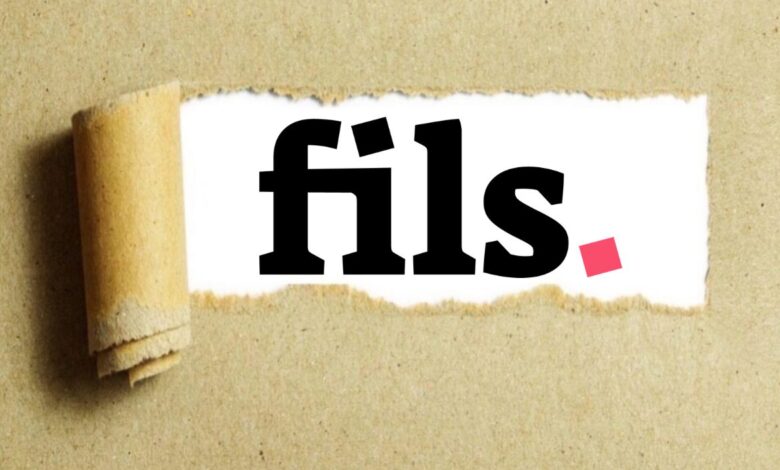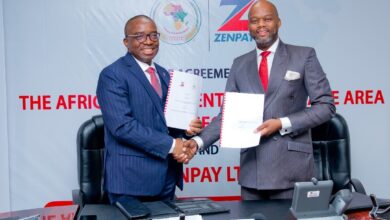Behind the Idea: Fils | The Fintech Times

The need for action to tackle an ever-present climate crisis is well documented across the globe. Despite this, progress in boosting sustainability in every respect has been slow, if not non-existent.
Nameer Khan is the CEO and co-founder of Fils and chairman of the MENA Fintech Association and is a passionate advocate for fintech’s role in boosting corporate sustainability.
Here, Khan explains how Fils is making an impact in making businesses across the globe more sustainable with digital infrastructure, how the firm has evolved over time, as well as what the future looks like for Fils.
Tell us more about your company and its offering

Fils is an enterprise-grade digital infrastructure provider that enables businesses of all sizes to embed sustainable and climate action into their business model and customer journeys across industries.
This cutting-edge innovation simplifies the integration of emissions tracking and mitigation for businesses, marking a significant step towards transparent and efficient voluntary carbon market transactions. Our platform effortlessly bridges companies eager to engage in climate action with globally accredited carbon-negative projects.
We have built a comprehensive B2B2C offering, making it easier for businesses to act on the core values of ESG. Fils’ platform is applicable across a broad range of industries, with current partners spanning telecoms, banking, payments and more.
What problem has your company set up to solve?
Organisations currently face a challenging task in tracking and offsetting emissions, due to the complexity of the fragmented voluntary carbon market.
Fils tackles this challenge head-on by bridging a crucial gap for organisations keen on making a positive impact, but uncertain about how to proceed. This mission resonates deeply with my personal goal to create something both legacy-leaving and profoundly impactful.
Our ambition is to foster a lasting, worldwide shift towards sustainability. Our strategy spans all 17 UN Sustainable Development Goals (SDGs), with a particular focus on combating climate change and its effects on society, including humanitarian aid, wildlife conservation, and disaster response, without inhibiting the normal operations of businesses.
At its heart, Fils is about crafting an infrastructure to enable the construction of a more sustainable economy and fostering a cohesive approach to climate change. We strive to make the earth more habitable for everyone, guided by our founding vision of regeneration and an enhanced relationship with the world around us.
Since launch, how has your company evolved?
In 2022, Fils embarked on its mission to revolutionise the ability of companies to adopt sustainable principles. Late last year, in the build-up to COP28, we celebrated our official launch, already in collaboration with leading regional acquirers and digital payments companies. Since then, we have partnered with an extensive list of organisations, financial institutions and innovators, including the Sui Foundation, which has enabled us to build a blockchain-powered platform, embedding transparency throughout our infrastructure.
Today, our network has grown extensively, connecting millions of merchants to vital sustainability resources and supporting hundreds of businesses in their quest to have a positive impact on their environment. Our platform currently supports over 80 projects, and we’re looking forward to welcoming more businesses as climate action continues to climb the corporate agenda. We are first and foremost an infrastructure provider, but we have also built a community of millions of merchants, each enacting positive change to transform their operations and better protect our environment.
At Fils, our strategy is clear: to build a scalable infrastructure as a foundation for climate-positive growth. With phase one focused on establishing robust connectivity, we’re now embarking on phase two, ready to expand our infrastructure and continue our journey towards enabling sustainable transformation globally.
What has been the biggest challenge or most ‘tricky moment’ to overcome?
General knowledge about the fundamentals of sustainability has been the most significant challenge. Despite widespread claims of understanding and making efforts to achieve net-zero carbon emissions, a closer examination reveals a rush towards this goal rather than a thoughtful approach. It’s all too common to come across organisations confidently asserting their net-zero status, but upon further inspection that is not the case. This issue is not isolated but prevalent globally, with many organisations quick to declare their net-zero status without sufficient evidence.
The distinction between merely claiming net-zero status and genuinely progressing towards it is crucial. The International Panel on Climate Change (IPCC) emphasises that true sustainability goes beyond announcements, requiring clear demonstrations of effective strategies and real-world changes. Operational efficiency plays a significant role, yet the critical role of carbon credits and carbon removal strategies is often underestimated or ignored. According to the IPCC, operational improvements can be a key part of the effort needed to reach net-zero emissions by 2050.
Educating organisations about the broader market opportunities and the vital role of carbon removal in achieving net-zero targets is imperative. With an existing atmospheric carbon concentration of 1.5 trillion tons and annual emissions of 51 billion tons, the challenge is not only to halt new emissions but also to address the accumulated excess. Carbon removal, therefore, is an indispensable component of any genuine effort to address and reverse climate change, underscoring the need for a comprehensive and informed approach to sustainability.
What are your biggest achievements or ‘proudest moments’ so far?
A major highlight has been signing partnerships which will make a real difference to the planet in the short and long term. It’s hard to pick one – Geidea, Mashreq Bank, Magnati and e& Enterprise are each leaders in their fields, and we are proud to call them partners. We’re building a movement in the finance industry, connecting organisations with common goals, and working together to maximise our positive impact on the environment.
Personally, watching Fils’ team grow, both in number and experience, has been very humbling. It’s not easy building something at the forefront of an emerging sector, and my team has faced each and every challenge head-on. Luckily, we are now enjoying ourselves a little more, expanding on what we know works and continuing to build a comprehensive sustainability platform.
How would you describe the culture of your company?
First, I am absolute in my conviction that every member of our team should enjoy their role. Whether that’s managing social media, operations or development, I ensure that their work is personally fulfilling. It’s a mutually beneficial policy, fostering a true passion throughout Fils whilst also boosting the quality of life of Fils’ team members.
We’re also meticulous about respecting boundaries. We have team members with children and other serious commitments outside of office hours and work with them to ensure their day job is as accommodating as possible. For me, that involves carving out time for exercise and playing cricket with my team, enabling me to work more effectively when I’m on the job.
What’s in store for the future?
Integrating blockchain technology has become a pivotal part of our growth so far, transitioning from an additional feature to a core element of our operations, especially for handling complex issues like carbon credits. We’ve emerged as one of the leading players globally to harness blockchain to deliver reliable solutions at scale.
As we advanced, the necessity for a strong technological foundation became apparent, leading to our adoption of Sui, an advanced blockchain platform. This move has not only improved our transparency and accountability but has also allowed us to venture into issuing NFTs for verifiable customer assurances.
Blockchain’s role extends beyond mere tracking; it revolutionises the carbon credit market by eliminating the previous cumbersome processes with its ability to facilitate seamless transactions. This enhancement is crucial not just for improving traceability but also for increasing operational efficiency.
We’re looking forward to identifying new, emerging technologies and utilising them to expand the capabilities of our enterprise-grade sustainability infrastructure. Further advancements in carbon trading standards, such as the EU’s recent ESG ratings, are also contributing to our roadmap, boosting demand for our connection to high-quality carbon credits.



